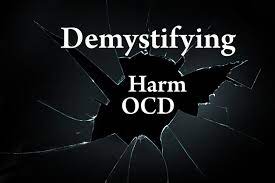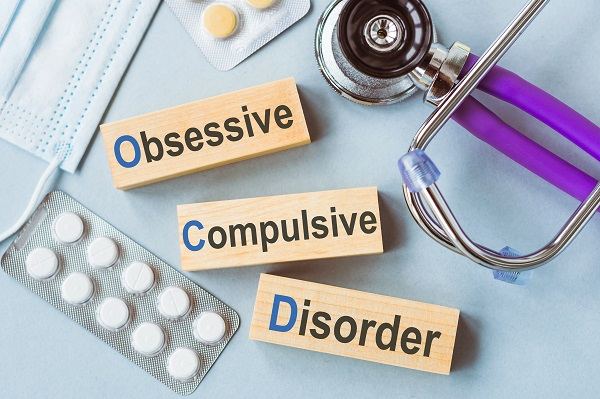Harm OCD, also known as Harm-Related Obsessive Compulsive Disorder, is a type of OCD that is characterized by intrusive thoughts about harming oneself or others. These thoughts can be extremely distressing and can lead to compulsions or rituals that are meant to prevent harm from happening. If you are struggling with Harm OCD, there is hope! In this blog post, we will discuss the road to recovery and provide tips and cure for overcoming this harm OCD disorder.
Contents
What Is Harm OCD?

In order to treat harmful OCD, exposure and ritual prevention therapy (ExRP) is preferred. By using systematic exercises known as exposures, ExRP helps you become less reactive to situations or thoughts that cause OCD symptoms. It is a cognitive-behavioral therapy. This therapy helps you to become aware of your thoughts and challenge them. It also helps you resist the urge to do rituals, like checking or avoidance behaviors, which can cause distress and make OCD worse.
ExRP involves gradual exposure to situations that trigger symptoms while refraining from compulsive behavior. For example, a person who experiences harm OCD might be asked to do an exposure exercise in which they deliberately expose themselves to triggers that make them feel anxious. The goal is to observe the discomfort and learn how to manage it without resorting to rituals or compulsions.
The long-term goal of ExRP is for you to be able to face anxiety-provoking situations without fear or avoidance. With ExRP, you will be able to accept and acknowledge anxious thoughts without fear as well. Your symptoms should lessen or go away over time with the help of a trained clinician guiding you through treatment.
It is important to seek professional help if you think you may have harm OCD. It can take up to 12 weeks of therapy for symptoms to start improving, though progress can vary depending on the individual. With the right kind of support and treatment, it is possible to overcome the harm of OCD cure and lead a healthy life.
Is Harm OCD A Mental Illness?
Yes, Harm OCD is a mental illness that is characterized by intrusive and distressing thoughts about harming oneself or others.
- People with Harm OCD experience persistent fear of losing control and causing harm to themselves or loved ones.
- These thoughts can be accompanied by intense anxiety, distress, and guilt. People with this disorder may also have difficulty focusing on tasks and experience excessive rituals such as checking and counting to help control their thoughts
- . They may also avoid situations in which they might be exposed to triggers that could lead them to act on their fears.
- Treatment for Harm OCD typically involves cognitive-behavioral therapy (CBT), medication, or a combination of both. CBT helps the person identify and change unhealthy thought patterns and behaviors associated with the disorder, while medications can help manage anxiety and reduce symptoms.
- With treatment, people with Harm OCD can often learn to cope with their symptoms and lead happier lives.
It is important to remember that someone with Harm OCD is not a danger to themselves or others. Although intrusive thoughts about harming oneself or loved ones.
Can Harm OCD be Treated with Medication?
Yes, harmful OCD can be treated with medication. Medication is often used in combination with cognitive-behavioral therapy to reduce symptoms of harm OCD. Commonly prescribed medications for harmful OCD include selective serotonin reuptake inhibitors (SSRIs) such as fluoxetine and sertraline, or tricyclic antidepressants such as clomipramine. Other medications that may be used include anticonvulsants and antipsychotics. Medication can help reduce the intrusive thoughts associated with harm OCD, but it is not a cure-all and should be combined with other treatment strategies for best results. Additionally, it is important to remember that medications can cause side effects, so it is essential to discuss these with your doctor before beginning any treatment.
It is also important to note that medication alone is not enough to treat harmful OCD, and psychotherapy should be an integral part of the treatment plan. Cognitive-behavioral therapy (CBT) has been found to be effective in treating harm OCD by helping the individual to identify their triggers and then develop strategies to cope with them. Exposure and response prevention (ERP) is another form of CBT that helps individuals face their fears so they can learn how to manage the intrusive thoughts associated with harm OCD. If you think medication and psychotherapy might be beneficial for your condition, speak with your doctor or mental health professional to discuss the best treatment plan for you.
Can Harm OCD Be Cured Permanently?
While there is no known cure for obsessive-compulsive disorder (OCD), and symptoms may persist, effective treatments are available to help manage OCD. These treatments typically involve cognitive-behavioral therapy (CBT) that focuses on helping individuals understand their thoughts and behaviors in order to change them. Medications such as selective serotonin reuptake inhibitors (SSRIs) can also be effective in reducing OCD symptoms.
When combined with support from loved ones, therapy, lifestyle changes, and medication can provide many people with symptom relief and improved quality of life. While OCD may not be fully cured, it is possible to manage the symptoms and lead a fulfilling life. It’s important to find the right treatment plan that works best for you. With perseverance and a good support system, those with OCD can lead healthy and productive lives.
If you suspect that you may have OCD, it is important to speak with a mental health professional who can provide an accurate diagnosis and recommend effective treatments. With the right support and treatment, you CAN overcome OCD and lead a happy life.
Is Harm OCD Caused By Stress?
Harm OCD can be caused by stress, but it is important to remember that the root cause of Harm OCD is typically linked to underlying mental health issues. Stressful life events and a history of trauma can increase one’s risk for developing Harm OCD. People with existing mental health conditions such as depression and anxiety may also be more susceptible to developing Harm OCD. Additionally, certain genetic factors may predispose people to this type of obsessive-compulsive disorder.
It is important for those suffering from Harm OCD to seek professional help. Cognitive behavioral therapy (CBT) is the most effective form of treatment and can help patients learn to manage their intrusive thoughts and develop healthy coping mechanisms. In some cases, medication may be prescribed to help reduce anxiety levels and improve one’s overall mental health. With the right treatment plan, those suffering from Harm OCD can lead a happy and healthy life.
It is important to remember that with any type of mental health disorder, stress can worsen symptoms. Taking steps to reduce stress in one’s life, such as getting enough sleep, eating a balanced diet, and engaging in regular physical activity can help to lessen the effects of Harm OCD. Additionally, connecting with supportive family and friends can provide comfort and be an invaluable part of the recovery process.
Can Harm OCD Be Cured Naturally?
Yes, it is possible to cure and manage OCD symptoms naturally. Many people find that utilizing lifestyle changes such as exercise, relaxation techniques, meditation, and mindfulness can help reduce their OCD symptoms. Other natural therapies such as cognitive-behavioral therapy, herbal remedies, and dietary changes may also be beneficial in treating and managing OCD. Additionally, a combination of natural therapies and traditional medical treatments may be the best approach for managing OCD. It is important to seek professional help if you are struggling with the obsessive-compulsive disorder so that a treatment plan can be tailored to your individual needs. With the right combination of therapy, lifestyle changes, and medication, it is possible to live a life free of obsessions and compulsions.
Conclusion
It may be concluded that harm OCD cure Exposure Response Prevention (ERP) Therapy, Cognitive Behavioral Therapy (CBT), and/or pharmacotherapy. ERP is the gold standard for treating OCD symptoms and should be used in combination with CBT and medication if necessary. The patient must be willing to accept the challenge of facing their obsessions head-on, as this is the only way to truly overcome them. With the right combination of treatments, it is possible to take control of your life and get rid of harm OCD symptoms.
The ultimate goal is to become aware that you do not need to act on every intrusive thought or feeling, and to be able to focus on other more enjoyable things in life. To achieve this, it is important to keep in mind the strategies identified in this article and make sure that they are used regularly. With persistence, patience, and a positive attitude, it is possible to overcome harm OCD symptoms.
For more information and guidance, please contact OCDMantra. OCD is a mental health disorder characterized by obsessions and compulsions. If you have any queries regarding OCD treatment, ERP therapy experienced therapists at OCDMantra can help: Book a trial OCD therapy session


